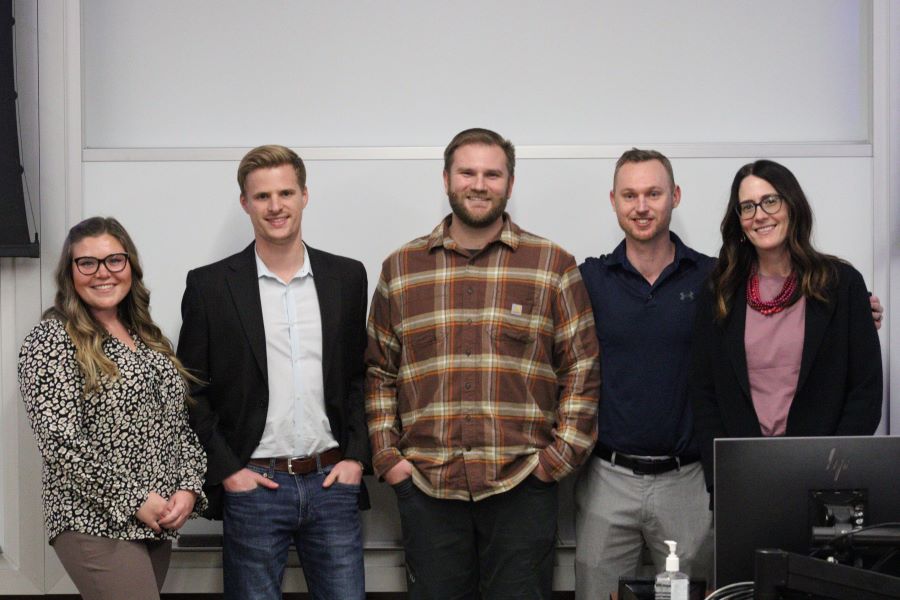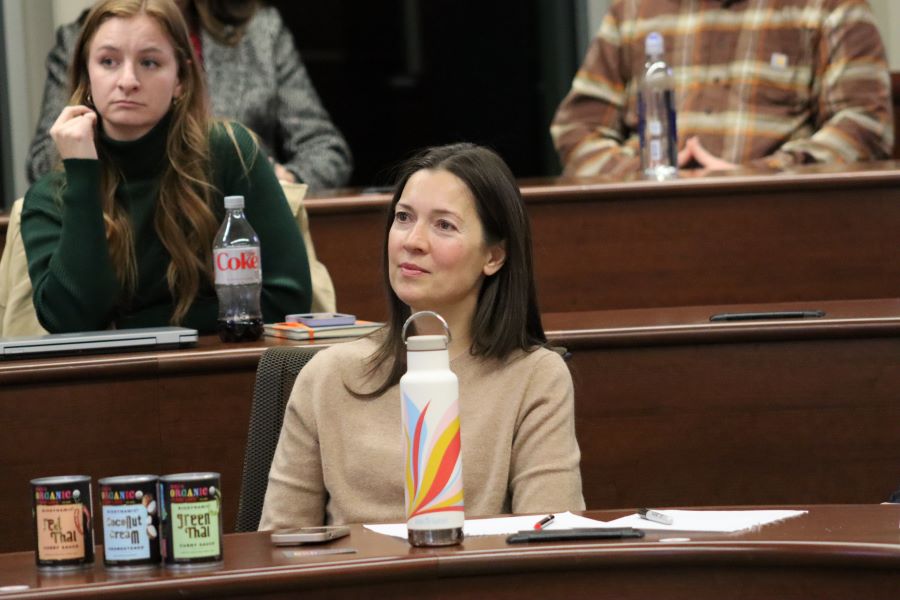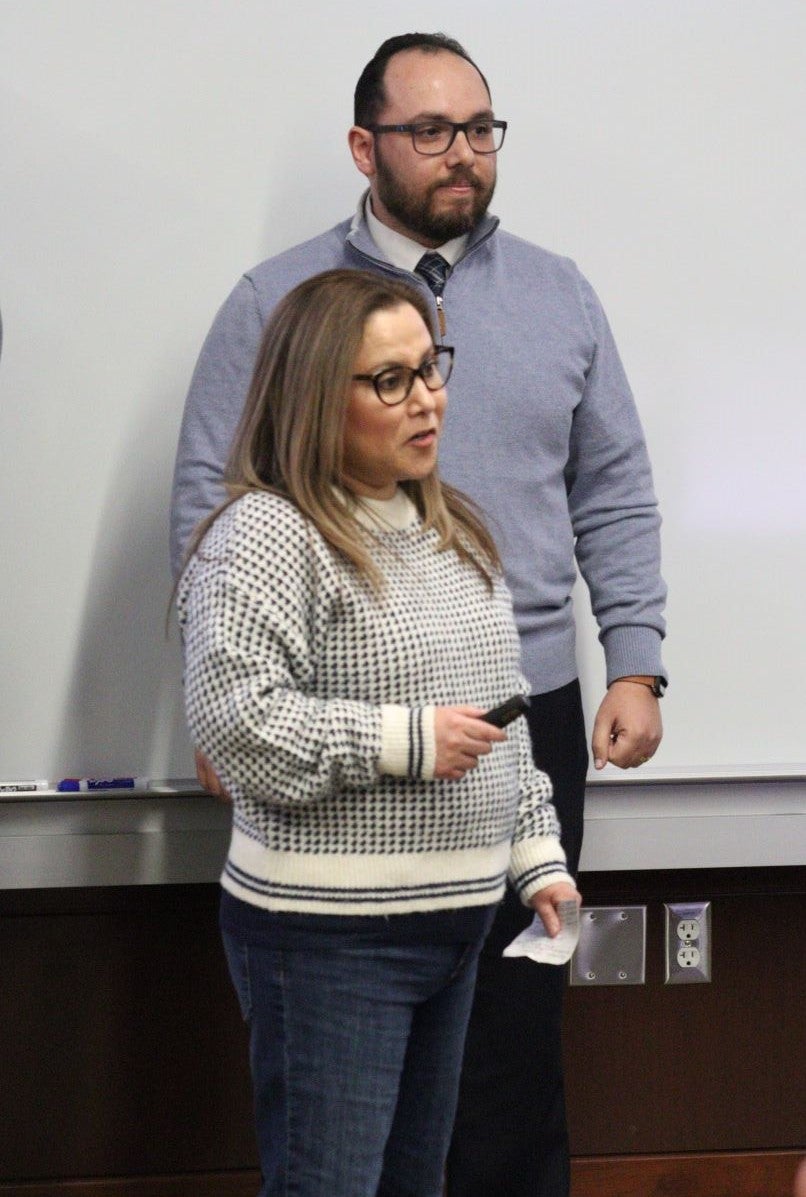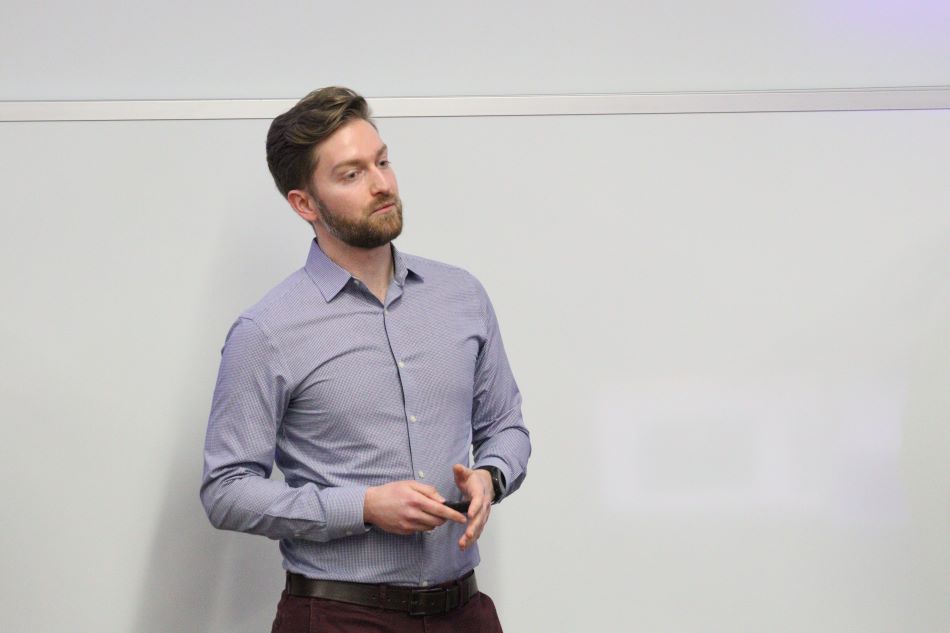By Rachel Bagnard | February 2024

Time and time again, research shows that the best way to learn is by practicing something regularly until it’s mastered. Today, Boise State MBA students are challenged to take what they’re learning in the classroom and apply it to real-world business scenarios, whether in their day job or partnering with local businesses in the Treasure Valley.
To foster applicable learning and positive impact in the community, the MBA curriculum intentionally requires that new students take Design Thinking as one of their first classes in the program. This course sets the stage for the rest of the program – teaching a growth mindset and innovative leadership.
What is Design Thinking?
Design Thinking is a creative process for business professionals to develop an end-user / customer-focused framework that provides solutions to problems. The discipline of Design Thinking teaches students to question preconceived assumptions, reevaluate problems, and create innovative solutions for unstructured, “messy” issues.
In the Professional MBA Program, first semester students take MBA 531 Strategic Perspectives (Design Thinking). In this course, students are grouped into teams of 4-5 and work collaboratively with a local sponsor company. Teams are instructed to look for insights by conducting interviews, creating consumer journey maps, compiling research, prototyping and testing to identify new areas of growth and opportunity.
How is Design Thinking Applicable?
Luke Jones, adjunct professor of MBA 531, incorporates this real-world partnership as the final project in his class.
Partner companies are invited to participate and learn from students as they provide unique perspectives and insights to current challenges in the marketplace. In addition, this partnership gives students the opportunity to implement the information they’re learning in the classroom. It’s a win-win. As Professor Jones explained:
“Having real-world projects allows students to apply the concepts and tools of design thinking as they learn them. This provides the practice students need to creatively solve challenges as part of a team. Creative, team-based problem solving is critical for business leaders and gives students the confidence they need to use design thinking in their own places of work.”
Professor Jones’ most recent group of MBA students partnered with Mike’s Organic Curry Love, a local Boise-based company. Owners, Mike Buechi and Laurie Sebestyen, generously took the time to learn alongside the students and inform them of the current pain points and opportunities they were experiencing.

With Mike and Laurie’s input, students worked diligently with their teams to gather information, identify customer needs, and develop creative solutions. Findings were then presented in a cumulative presentation. Mike and Laurie attended the final presentations, listened attentively, and came with an open mind.
Benefits of Partnership
With successful products sold in Albertsons, Whole Foods Market, Amazon and other stores, Mike and Laurie will be the first to tell you that the industry and consumer needs are always changing. They joined the Design Thinking project partnership in hopes of obtaining more customer insights, unique approaches to problems, and novel ideas that weren’t on their radar.
Each student team took different approaches to understanding the product, market, and potential recommendations. Through interviews, journey maps, focus groups, competitor research, vendor outreach and more, students spent 6+ weeks on-the-ground in a consultant role.

On the final night of class, Mike and Laurie listened as teams presented their insights and ideas. Recommendations ranged from new products, packaging and marketing strategies to hiring recommendations and novel partnerships.
After watching the Design Thinking presentations, the husband-wife duo was notably moved. Laurie commented on the quality and depth of the students’ analysis. The students “wanted to offer real solutions,” she explained – and were “rooting for us” to succeed in the next step of their business.
When Laurie was asked what input she would give to other businesses who may be considering collaborating with MBA students for projects, she said, “They absolutely should… It was a positive and valuable experience for us all-around.”
In addition to new insights and ideas, MBA projects offer the opportunity to expand business reach to new potential customers or for hiring purposes. With Mike’s Organic Curry, students exposed family, friends and acquaintances to the brand over 250 times – an impactful, free marketing opportunity for a small, local brand.
What makes a successful project partnership?
From the academic side, Professor Jones explained that there are four key factors that make student projects both relevant and successful for the sponsor business:
- Understanding: First and foremost, students must understand the customer’s / user’s needs. A considerable amount of time is spent uncovering insights that transform the way clients think about their current and future customers.
- Focus: Students are laser-focused on developing concepts and strategies to meet unmet needs.
- Openness: A critical piece to the creative processes is listening to outside perspectives that encourages “out of the box thinking” and openness to new ideas.
- Continuous Learning: Students are constantly prototyping, testing and adapting to improve their thinking and ideas for new markets, sales channels or new products / services.
The client’s results are impactful even though the time requirement is minimal. MBA professors work to ensure that the sponsors time spent working with students is efficient. For example, Professor Jones works one-on-one with partners to create a project scope document and helps define the problems so that students understand what’s needed. From there, company representatives attend one evening class to present to the students. Questions from students are often grouped together and answered via email 1-2 times throughout the project, minimizing in-person requirements for the business.
Student Learning Outcomes
In addition to the benefits a business receives from partnering with Boise State’s MBA programs, students receive real-time, on-the-spot feedback as they open the floor for Q&A time at the conclusion of their presentations. This allows sponsors to provide feedback, ask for clarification, or dive deeper into the insights presented.

The information presented in the Design Thinking class, along with the sponsor feedback, provides students with real-world experience to develop a sustainable competitive business strategy that is directly transferable to both future MBA classes and in the workplace. Student growth and community impact is a direct result of their openness to new ideas, listening to different perspectives, and bringing passionate professionals together who are driven to better understand what customers are looking for.
Next steps
- Are you a Treasure Valley business who’s interested in partnering with MBA students? Learn more by visiting the Community Engagement webpage with more information, or email Ally Daniels, Online and Professional MBA Director, at AllyDaniels@boisestate.edu.
- Or, is a Boise State MBA piquing your interest? Learn more on our MBA website, or email Rachel Bagnard, MBA Admissions & Advising Manager, with questions or requests for more information (including any of the other MBA offerings – including the Online MBA) at rachelbagnard@boisestate.edu.